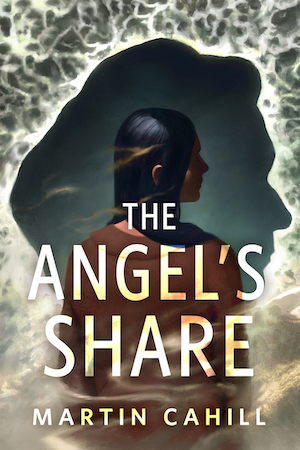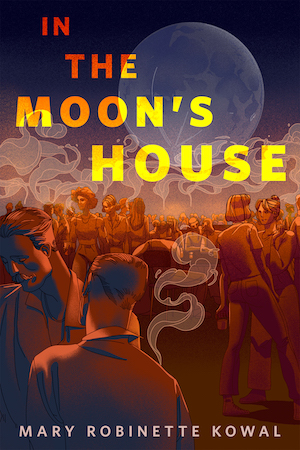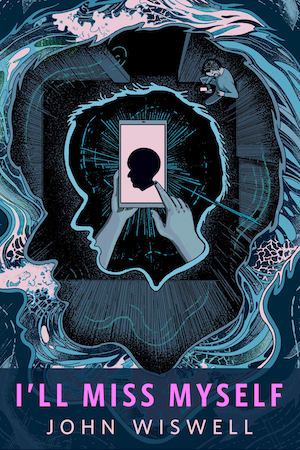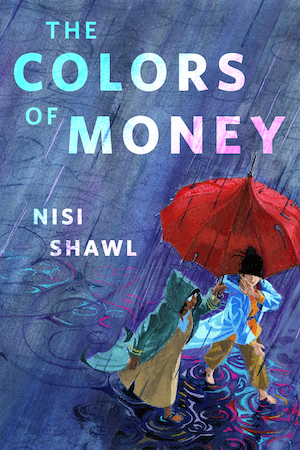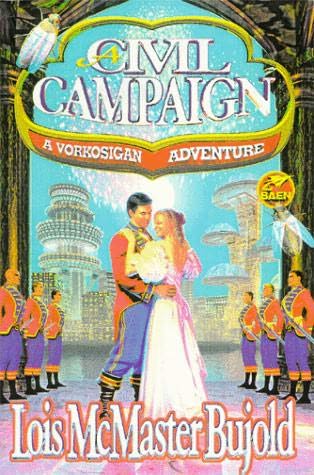A Civil Campaign (2000) is a another one that I don’t think stands alone, as it is in many ways a continuation of the emotional and romantic plot of Komarr (1998). The two books are now available in one convenient volume as Miles in Love.
The Vorkosigan series began with books that looked like military adventure, developed unexpected depths, had a few volumes that look like investigative mysteries, and now this volume is an out-and-out comedy of manners romance. It’s dedicated to “Jane, Charlotte, Georgette, and Dorothy” which I take to be Austen, Bronte, Heyer and Dunnett. The title is of course a homage to Heyer’s A Civil Contract, though it bears no relationship to that story. If there’s one Heyer to which it nods, it is The Grand Sophy.
There is a political plot, in the narrowest sense, maneuvering in council chambers for votes, and there’s a scientific and economic plot about the invention of butter bugs, but the important heart of A Civil Campaign is all romantic.
I’ve complained about the covers before, but I think A Civil Campaign has the ugliest cover of any book in the house except the UK Vlad compilation. I took the dust-jacket off the hardcover, and I wince whenever I look at the paperback. If ever there was a case for a brown paper cover this is it. The colours are horrible, it’s made of nasty shiny stuff, and the picture is unspeakable.
To get back to the text as rapidly as possible… The other books either use one point of view or alternate between two. A Civil Campaign has five points of view: Miles, Mark, Ekaterin. Kareen and Ivan.
There are a number of lovely things about A Civil Campaign. There are a lot of laugh-out-loud funny bits. There’s Ivan’s point of view. There’s the couch scene. There are the twin problems of Rene Vorbretton, whose gene scan shows him one-eighth Cetagandan, and Lord Dono, formerly Lady Donna, Vorrutyer. There’s Lord Vormuir and his daughters. There’s Mark, though not enough of him. There’s Kareen, torn between Barrayar and Beta and trying to figure out what she wants. There’s Nikki calling Gregor, and indeed, a lot of Gregor, who seems to have grown up very happily. There’s every Barrayaran character from earlier in the series, entirely making up for Komarr‘s lack of familiar characters.
It contains a good deal of embarrassment comedy (the dinner party in particular, which is excruciating) and rather more physical comedy than I care for—the bug butter custard pie fight has not grown on me (if anything the reverse).
Uniquely for this series, it retcons. At the end of Komarr, Ekaterin asks to take a number. That’s the resolution of the emotional arc of the novel. As of the beginning of A Civil Campaign, that resolution hasn’t happened, and Miles is trying to woo Ekaterin in secret—in secret from her. This goes spectacularly wrong, as anyone but Miles would have predicted, and then goes right again. I find the going wrong much more convincing than the going right. This could just be me. I often have this problem with romance novels, where I find the descriptions of women falling in love adhere to emotional conventions that are as stylised as a Noh play and bear no relationship to anything I have ever felt or imagined feeling.
Miles’s feelings for Ekaterin are no more or no less love than what he has felt for all his women since Elena, a genuine fondness, sexual passion, and a strong desire for a Lady Vorkosigan and a family. Miles always proposes—well, not to Taura, but he has proposed to every human woman he’s been involved with, however unsuitable. He pursues her, sometimes literally, he loves her, as he understands love, but he demonstrably can’t give her space to let her be herself. He apologises, and he knows what he did, but he’d never have figured it out on his own and he’ll do it again because that’s who he is. Ekaterin’s feelings for him are, as I said, beyond me. I liked her in Komarr, and I understood her horrible marriage to Tien. I can’t get my head around her in A Civil Campaign. Miles gets the girl, finally. OK.
What I do find effective is that Tien’s death, far from being the easy way out it seemed in Komarr, comes back to almost literally haunt them with the implications that Miles murdered Tien, which can’t even be denied without revealing the whole plot. And speaking of hidden plots, Miles doesn’t know the truth about the Sergyar war and the mountain of corpses Ezar buried Serg under. Aral mentions it was a lucky shot for Barrayar that killed Serg, and Miles just accepts that. The secret Cordelia fled to Barrayar to keep is a very closely held secret, still—when Illyan and Aral and Cordelia die, nobody will know it. Unless they’ve told Gregor? But the strong implication of that scene is that they haven’t. That secret, not her love for Aral, is why Cordelia immured herself in Barrayar all this time. I was pleased to see Enrique mention that she was wasted on that planet. (Incidentally, I find Cordelia’s love for Aral as we see it in her own POV utterly convincing.)
Meanwhile, Kareen loves Mark and wants to be herself, and Mark wants her to be. This pair are charming and I am charmed by them. Sure Mark needs more therapy and Kareen needs more Betan education, but they’re growing up fine, and consistently with where we last saw them in Mirror Dance.
As for Ivan, he’s just a delight, whether it’s by running rings around him, or Miles accepting his refusal to help, or his disgust at being seconded to his mother for pre-wedding chores. Oh, and his romantic panic is also just right.
Barrayaran law, all we see of it, gives the perfect illusion of making sense, fitting with everything we have seen of it before, and with the human oddities that real legal systems have. That’s quite an achievement. And how nice to see Lord Midnight mentioned again as a real precedent. And if it contrasts with the many forms the Escobarans have to fill in to extradite Enrique, well, we know about the run around offworlders are given, from Calhoun back in The Warrior’s Apprentice. You can’t trust their word, bury them in forms. I love Nikki giving his word as Vorsoisson for the first time, too.
In the best Heyer style, all the plots and plotting come together in a hectic climax where the obstacles go down like dominoes to reveal a happy ending. I mentioned the bug butter fight already, and I wish it wasn’t there, it isn’t necessary. The scene in the Council of Counts is terrific though. The bit with all the Koudelka girls finding such different partners is cute. And how nice to see Lord Vorhalas alive and well and as honourable as ever.
This is another potential ending for the series. Miles is betrothed, Mark is the next thing to betrothed, Gregor is married. I half-expected the next book to be set a generation ahead, with Aral and Cordelia dead and Miles and Ekaterin’s children (and Mark and Kareen’s) ready to get into trouble.The end of this book, with so many loose ends tied up so happily, would have made a good resting point. But with this kind of open series there’s no reason ever to stop, as long as the characters keep interesting the author and there are new adventures to be had. There’s no end, no climax that completes anything, just history going onwards. I think that’s a strength and a weakness. It’s certainly been a strength—the Vorkosigan saga has never been repetitive, and in doing new and different things it broke new ground—but it can also start to seem that it isn’t headed anywhere. The things I like in this book (apart from the Ivan POV) are all little series background details—the kinds of things I call “sandwiches on spacestations” as shorthand. (A friend and I once exchanged a lot of detailed emails with the title “Cheese sandwiches in Cherryh”). If this had been the end of the series, I’d have been quite satisfied, but I don’t think I’d have been as satisfied with this end as I would have been if Memory had been the end. But they’re neither of them ends, and the series is ongoing.


